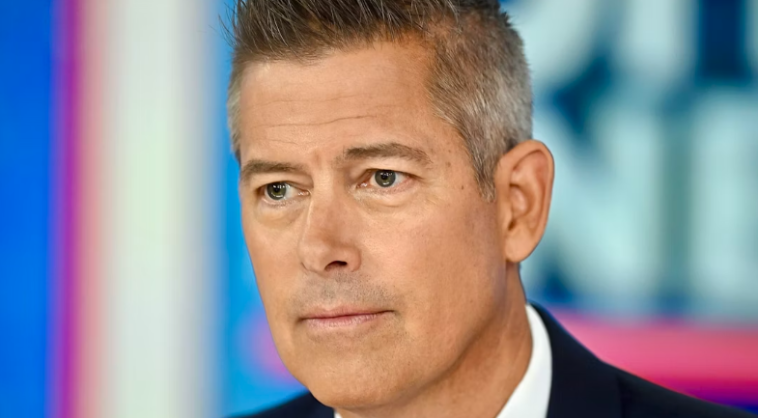President-elect Donald Trump has announced former Congressman Sean Duffy as his nominee for Secretary of Transportation. Known for his conservative stance and outspoken advocacy for limited government, Duffy is set to lead sweeping reforms within the Department of Transportation, including a controversial plan to eliminate Diversity, Equity, and Inclusion (DEI) policies in the aviation industry. Duffy’s nomination is a cornerstone of Trump’s broader agenda to overhaul federal agencies and focus on merit-based systems.
Duffy’s Vision for Transportation Reform
Duffy, who represented Wisconsin’s 7th Congressional District from 2011 to 2019, has been a prominent figure in Republican politics, frequently championing conservative values and deregulation. In his new role, Duffy aims to prioritize efficiency, safety, and meritocracy within the transportation sector. His plan to eliminate DEI initiatives specifically targets programs affecting pilots and air traffic controllers, which he argues prioritize social agendas over competence and safety.
Speaking about his vision, Duffy stated, “The aviation industry should focus on ensuring the highest standards of skill, safety, and performance. Policies that compromise these standards in the name of political correctness have no place in our skies.”
Targeting DEI Policies in Aviation
Duffy’s plan to dismantle DEI initiatives within the aviation industry is one of his most notable proposals. These initiatives, implemented under the Biden administration, were designed to increase diversity among pilots, air traffic controllers, and other aviation personnel. Critics of these policies, including Duffy, argue that they risk lowering safety standards by emphasizing quotas and demographic representation over qualifications and ability.
“The lives of passengers depend on the skills and decisions of pilots and air traffic controllers,” Duffy explained. “We cannot afford to make compromises in these critical roles. Merit and expertise must always come first.”
Supporters of Duffy’s approach argue that removing DEI requirements will create a more merit-based and efficient workforce, ensuring that only the most qualified individuals are entrusted with aviation responsibilities. However, the plan has faced criticism from those who see DEI policies as vital for fostering inclusion and addressing historical inequities in the industry.
Broader Implications for Federal Transportation Policy
Duffy’s nomination aligns with Trump’s broader effort to roll back what he describes as unnecessary government overreach and regulation. The incoming administration has pledged to prioritize infrastructure modernization, streamline operations within federal agencies, and focus on cost-effectiveness across the transportation sector.
As Secretary of Transportation, Duffy is expected to take a hands-on approach to address challenges such as improving air travel infrastructure, enhancing highway systems, and bolstering maritime and rail operations. His track record as a fiscal conservative suggests that cost-cutting measures and efficiency will be key themes of his tenure.
Industry Reactions and Upcoming Confirmation Hearings
The aviation industry and transportation professionals have expressed mixed reactions to Duffy’s nomination. Supporters applaud his commitment to safety and merit-based practices, while opponents raise concerns about the potential loss of diversity in a historically homogeneous field.
Duffy’s confirmation hearings are expected to focus heavily on his plans to reform the aviation sector and his broader vision for the Department of Transportation. Lawmakers will likely question him on how he intends to balance the need for inclusivity with maintaining the highest safety standards.
Looking Ahead
If confirmed, Duffy will oversee a wide range of transportation initiatives, from aviation safety to infrastructure development. His stance on eliminating DEI programs will likely set the tone for his tenure, marking a significant departure from the policies of the previous administration.
Duffy’s nomination signals a clear shift in federal transportation policy, emphasizing competence, efficiency, and safety over what the incoming administration views as politically driven agendas. His leadership is expected to bring significant changes to the Department of Transportation, with far-reaching implications for the nation’s transportation systems and workforce.


